MATCH POINT
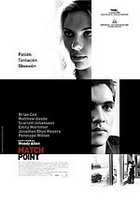 Director: Woody Allen (writer for Your Show of Shows)
Director: Woody Allen (writer for Your Show of Shows)Starring: Jonathan Rhys Meyers, Scarlett Johansson, Emily Mortimer
That Match Point was written and directed by Woody Allen is one of the surprises of cinema in 2005. This truly excellent thriller set among the young, rich and beautiful of London society bore little resemblance to the New York smart-set comedies that he’s known for. There’s one exception to this, however. Most every character of his, whether New York comedic culture-ites or English thriller culture-ites, all are possessed of a great degree of self-involvement. Usually, that is what leads to the conflict. Match Point is no different. These characters are swimming in their own desires.
At the most obvious level, this film is about luck. The opening image is of a tennis ball striking a net and bouncing in the air, which side it will land on uncertain. Who will win, and who will lose unknown. This image is critical to the excellent ending that I won’t divulge. There is certainly luck involved in it. More important, however, were the actions that led up to the ending. Most of the film is a slowly and steadily building suspense that follows a poor young tennis pro (Jonathan Rhys Meyers) as he joins the English social elite through the back door. That is, he happens to meet a rich, sweet young woman and marries into the family. This eager, active, and extremely ambitious young man will do much to achieve this status. Although I think it certain that there was nothing untoward in his relationship with the girl. I think he simply got lucky and found a good catch.
His own desires threaten to pull down the world that he’s built around him, however. Soon after meeting the young woman, he begins a secret affair with a luscious Scarlett Johansson, playing a struggling American actress. This man was ambitious and self-involved, and though he would do much to achieve his status, we see that he would do much worse to retain it. In the end he’s even willing to commit murder to do so.
I think that this would have been the best script of 2005 were it not for the excellent Brokeback Mountain. In fact, this film could make a claim to the best picture of 2005. It was a success in most every way. Woody Allen certainly deserves much praise for this work. Although deliberately paced, it always moves determinedly forward to the thrilling ending. This pace was extraordinarily well done, and really necessary to achieve the emotional highs that the climax provides. The characters were richly drawn and well acted. In particular Meyers and Johansson gave excellent performances. This film will rank among Allen’s best.
Standouts: Story, story, story. But it’s also excellent in most other ways.
Blowouts: Little to nothing.
Grade: A+
2/02/2006
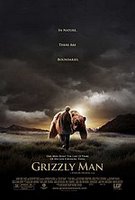
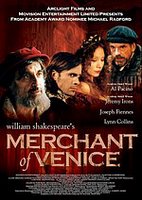
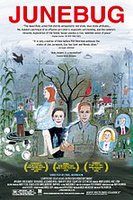
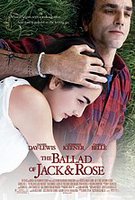

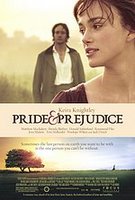

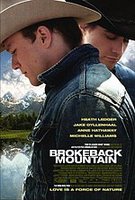 Director: Ang Lee (Crouching Tiger Hidden Dragon, Ice Storm, Sense & Sensibility)
Director: Ang Lee (Crouching Tiger Hidden Dragon, Ice Storm, Sense & Sensibility)
